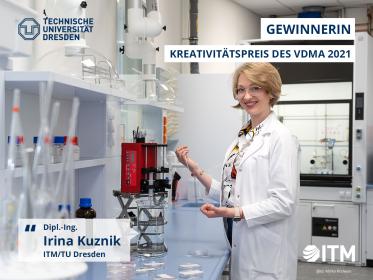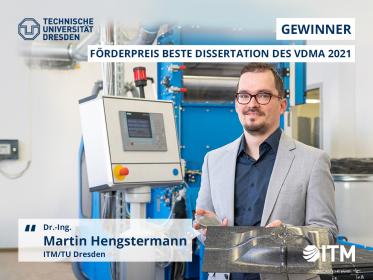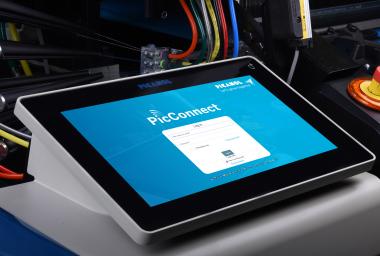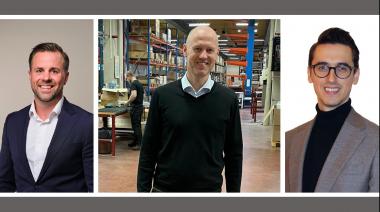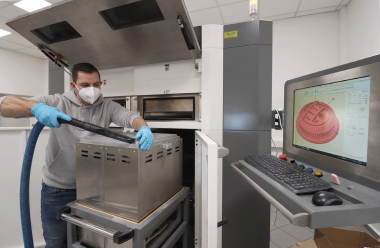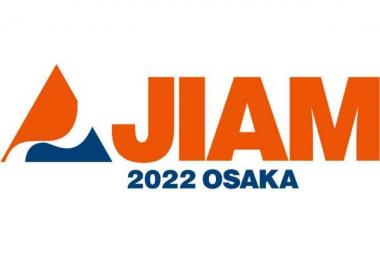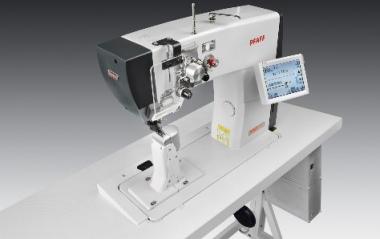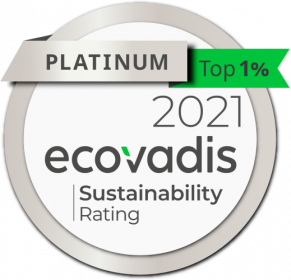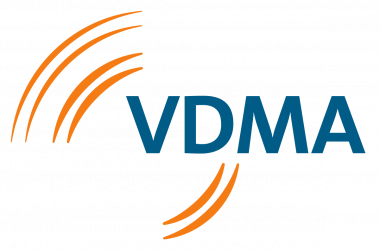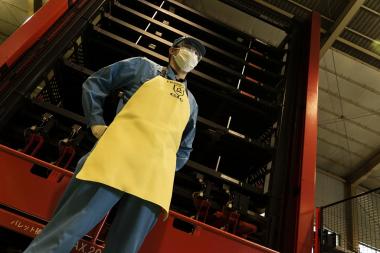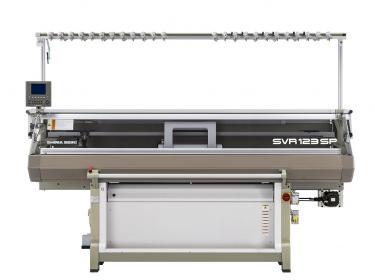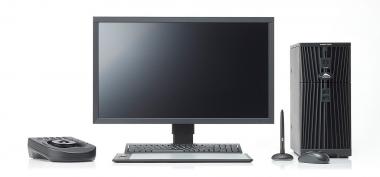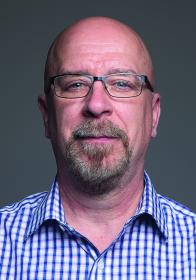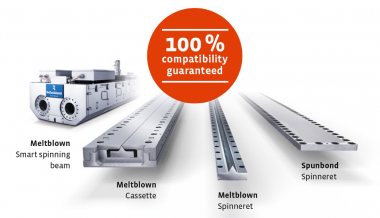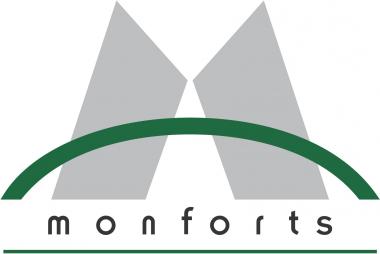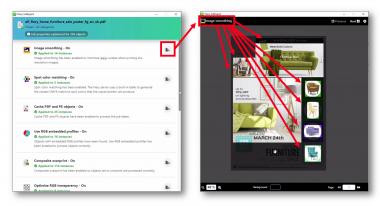Kreativitätspreis des Deutschen Textilmaschinenbaues 2021 geht an Irina Kuznik
Die Verleihung der Förder- und Kreativitätspreise 2021 der Walter Reiners-Stiftung des VDMA, Fachverband Textilmaschinen an Studierende und Nachwuchswissenschaftler:innen deutscher Universitäten für Spitzenleistungen in Studium und Promotion fand am 09. November 2021 im Rahmen der Aachen-Dresden-Denkendorf International Textile Conference 2021 statt. Die bundesweit ausgeschriebenen Förder- und Kreativitätspreise wurden erneut online durch Herrn Peter D. Dornier, Vorstandsvorsitzender der Walter Reiners-Stiftung, verliehen.
Frau Dipl.-Ing. Irina Kuznik vom Institut für Textilmaschinen und Textile Hochleistungswerkstofftechnik (ITM) der TU Dresden wurde mit dem 3.000 EUR dotierten Kreativitätspreis des Deutschen Textilmaschinenbaues 2021 für ihre exzellente Diplomarbeit „Entwicklung zur umweltfreundlichen Herstellung neuartiger Chitosanfasergarne unter Einsatz von ionischen Flüssigkeiten" ausgezeichnet.
In ihrer Diplomarbeit entwickelte Frau Kuznik einen völlig neuen Ansatz zur ökologischen und ökonomischen Herstellung von Chitosangarnen. Unter Nutzung ionischer Flüssigkeiten als gut geeignetes, neuartiges Lösungsmittel für Chitosan lässt sich Chitosan mit geringen Deacetylierungsgraden sowie reines Chitin erfolgreich auflösen. In einem Nassspinnverfahren können damit erzeugte Spinnlösungen zu neuartigen Chitosan- bzw. Chitinmonofilamenten mit sehr guten morphologischen Eigenschaften hergestellt werden. Des Weiteren lässt sich die ionische Flüssigkeit mittels eines Verdampfungsverfahrens aus dem Abwasser zurückgewinnen und wiederaufbereitet werden.
Technische Universität Dresden
Institut für Textilmaschinen und Textile Hochleistungswerkstofftechnik (ITM)


